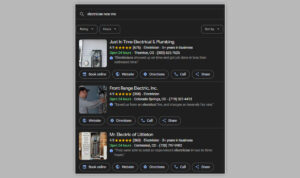Pinterest affiliate marketing is a great way to earn money by sharing products and services you love.
Creating and scheduling pins, will help you reach reach a wide audience and drive traffic to your affiliate links.
This guide will help you understand how to effectively schedule your pins on Pinterest to maximize your affiliate marketing efforts.
This page may contain affiliate links and we may earn a small commission at no additional costs to you if you purchase through theses links.
-
Table of Contents
Key Takeaways
Understanding Pinterest Affiliate Marketing
What is Pinterest Affiliate Marketing?
Why Should Affiliate Marketers Use Pinterest?
Creating a Pinterest Affiliate Marketing Strategy
Setting Up Your Pinterest Account
Optimizing Your Pinterest Profile
Finding Your Niche
Joining Affiliate Networks and Programs
Designing Effective Pins for Affiliate Marketing
Creating Eye-Catching Pins
Using High-Quality Images and Videos
Writing Compelling Descriptions
Scheduling Your Pinterest Pins
Using Pinterest’s Native Scheduler
Leveraging Third-Party Tools like Tailwind
Leveraging Predis.ai
Determining Optimal Pinning Times
Optimizing Pins for SEO
Using Keywords Effectively
Creating Rich Pins
Analyzing Pin Performance
Pinning to Group Boards
Disclosing Affiliate Links
Analyzing and Improving Pin Performance
Using Pinterest Analytics
Tracking Performance with Google Analytics
Adjusting Your Strategy Based on Data
Avoiding Common Mistakes in Pinterest Affiliate Marketing
Not Over-Pinning
Avoiding Spammy Behavior
Staying Updated with Pinterest’s Rules
Leveraging Pinterest Marketing Tools
Top Tools for Pinterest Marketing
Benefits of Using Automation Tools
Maintaining Brand Consistency with Templates
Conclusion
Frequently Asked Questions
What is Pinterest Affiliate Marketing?
Why should affiliate marketers use Pinterest?
How do I start with Pinterest Affiliate Marketing?
What are some tips for creating effective pins?
How can I schedule my pins on Pinterest?
What are the best times to pin on Pinterest?
How do I disclose affiliate links on Pinterest?
How can I track the performance of my pins?
Key Takeaways
-
Pinterest affiliate marketing involves promoting products through pins to earn commissions.
-
Setting up and optimizing your Pinterest account is crucial for success.
-
Joining the right affiliate programs can boost your earnings.
-
Creating eye-catching pins and compelling descriptions is essential.
-
Scheduling pins at optimal times can increase your reach and engagement.
Understanding Pinterest Affiliate Marketing
What is Pinterest Affiliate Marketing?
Pinterest affiliate marketing is when you use Pinterest to promote products or services through affiliate links.
You create Pins that recommend these products. If someone clicks on your link and buys something, you earn a commission.
It’s a simple way to make money by sharing things you love. (Keep in mind that it may take some times to get some real traction, be patient)

Why Should Affiliate Marketers Use Pinterest?
Pinterest is a great place for affiliate marketers because it’s all about discovering new things. People come to Pinterest to find ideas and products.
This makes it perfect for sharing affiliate links. Plus, Pinterest has a huge user base, so you can reach a lot of people. Here are some reasons to use Pinterest for affiliate marketing:
-
Visual Appeal: Pinterest is a visual platform, making it easier to attract attention with eye-catching Pins.
-
High Engagement: Users on Pinterest are often looking for inspiration, which means they are more likely to engage with your content.
-
Long Lifespan of Pins: Unlike other social media posts, Pins can continue to drive traffic and sales for months or even years.
Start creating a strategy that helps you earn commissions and grow your online presence.
Here are the FractalMax boards, organized by categories.

Creating a Pinterest Affiliate Marketing Strategy
If you want to use Pinterest to boost your affiliate marketing, you need a good plan. A solid strategy can help you get noticed and drive clicks and sales.
Here’s how to create a winning Pinterest affiliate marketing strategy:
Setting Up Your Pinterest Account
First, you need to set up a Pinterest account.
Make sure to switch to a business account to access analytics and other tools.
This will help you track your performance and make better decisions.
Optimizing Your Pinterest Profile
Next, optimize your profile. Use a clear profile picture, write a compelling bio, and include relevant keywords.
This makes it easier for people to find you and understand what you offer.

Finding Your Niche
Finding your niche is crucial. Focus on a specific topic or area that you are passionate about and that has a good audience on Pinterest.
This will help you create content that resonates with your followers.
Here are some popular niches on Pinterests:
1. Home Decor: Ideas for interior design and DIY projects are immensely popular.
2. Health and Fitness: Share workout routines, healthy recipes, and wellness tips.
3. Fashion: Outfit inspiration and styling tips attract a wide audience.
4. Beauty: Makeup tutorials and skincare routines are highly sought after.
5. Travel: Travel guides and destination inspiration can captivate users.
6. Food: Recipes and cooking hacks are always in demand.
7. Personal Finance: Tips on budgeting and saving money can draw interest.
8. Crafts: DIY projects and crafting ideas engage creative users.
9. Parenting: Share tips, activities, and advice for parents navigating their journey.
10. Technology: Explore the latest gadgets and tech trends to attract a tech-savvy audience.
Once you identify your niche, start creating pins that align with it. Use high-quality images, engaging descriptions, and relevant hashtags to increase visibility.
Consistency is key!

Joining Affiliate Networks and Programs
Diving into the world of affiliate marketing on Pinterest can be both exciting and profitable, especially when you connect with the right affiliate networks.
These networks serve as a bridge between you and merchants looking to promote their products, offering a centralized platform where you can find a large pool of affiliate programs tailored to various niches.
Designing Effective Pins for Affiliate Marketing
Creating Eye-Catching Pins
Creating highly visual, captivating pins is crucial for your Pinterest affiliate marketing efforts.
These visuals shouldn’t merely be beautiful; they ought to tell a story or showcase your product effectively.
Whether it’s Static Pins, Idea Pins, Video Pins, or Collection Pins, ensure they are SEO-optimized with engaging titles and descriptions.
As you see below, you can easy create pins using Canva. I use canva Pro to create my design but you can get started with Canva free plan.
In you dashboard, select:
-
Create new design
-
Then Pinterest Pin (1080 x 1920) or Pinterest Pin (1000 x 1500)

Using High-Quality Images and Videos
Using high-quality images and videos is essential for making your pins stand out. High-resolution visuals attract more attention and can lead to higher engagement rates.
Make sure your images are clear, well-lit, and relevant to your content.
Videos should be short, engaging, and to the point.
Writing Compelling Descriptions
Your pin descriptions should be fresh and engaging.
Vary your language and emphasize different product features or benefits in each description.
Always include a clear call to action like “Check this out!” or “Find out more here.”
Pair your descriptions with SEO-optimized titles to increase visibility.


Scheduling Your Pinterest Pins
Using Pinterest’s Native Scheduler
If you have a Pinterest business account, you can schedule Pins on desktop or mobile up to two weeks in advance.
You can only schedule one Pin at a time, and you can have a maximum of 10 pins scheduled for the future.
You can only schedule 30 days in advance.
Here’s how to do it:
-
Create your Pin as usual.
-
Click on the “Publish at a later date” option.
-
Choose the date and time you want your Pin to be published.
-
Click on “Schedule” to finalize your Pin.

Leveraging Third-Party Tools Like Tailwind
Tailwind is a popular tool for scheduling Pinterest Pins. It offers more flexibility and features than Pinterest’s native scheduler.
Here’s how to use Tailwind:
-
Sign up for a Tailwind account.
-
Connect your Pinterest account to Tailwind.
-
Create your Pin in Tailwind.
-
Choose the date and time for your Pin to be published.
-
Click on “Schedule” to finalize your Pin.
Tailwind also provides analytics to help you track the performance of your Pins.
Leveraging Third-Party Tools Like Predis.ai
Predis.ai is a poweful automation tools to post on Pinterest and other social media paltforms, as you can see belw.
This tool is an all-in one platform, you can save a lot of time with it.
-
AI design
-
Description
-
Captions
The design and content is generated for you, but keep in mind that you can edit everything if needed…. or you can create your own design if needed.

Determining Optimal Pinning Times
To get the most engagement, you need to pin at the right times. Here are some tips:
-
Analyze your audience: Look at when your audience is most active.
-
Use analytics tools: Tools like Tailwind can help you find the best times to pin.
-
Experiment: Try different times and see what works best for you.
Eastern Standard Time (EST):
These times are based on user engagement trends on Pinterest and can help maximize visibility and interaction with your content.
It’s always a good idea to experiment with different times to find the specific schedule that works best for your audience.
Optimizing Pins for SEO
Using Keywords Effectively
To get your pins noticed, you need to use the right keywords. Think about what your audience is searching for and include those words in your pin titles and descriptions.
These small additions can make a big difference in getting your pins found by the right audience. I
t’s also a good idea to use hashtags strategically since they can help your content get discovered in searches.

Creating Rich Pins
Rich Pins are a great way to make your content more engaging. They automatically pull in extra information from your website, like prices or availability.
This can help increase traffic and user engagement. To set up Rich Pins, you need to add some code to your website and apply for Rich Pins on Pinterest.
Analyzing Pin Performance
To know if your SEO efforts are working, you need to analyze your pin performance. Look at metrics like saves, clicks, and impressions.
This will help you understand what’s working and what’s not. Use this data to tweak your strategy and improve your results.
By following these steps, you can make sure your pins are optimized for SEO and reach a larger audience.
Pinning to Group Boards
Joining group boards on Pinterest is a great way to get your pins seen by more people. Group boards are like community bulletin boards where many users can share their pins.
This helps your pins reach beyond just your followers. Each pin you post to a group board shows up in the feed of every member, which can drastically increase your pin’s visibility.

Disclosing Affiliate Links
When you use Pinterest to drive affiliate sales, it’s important to always disclose your affiliate links.
Transparency is not only ethical but also aligns with legal requirements and Pinterest’s guidelines.
Here’s how you can integrate these disclosures seamlessly into your content:
1. Use clear language: Make sure your audience understands that you may earn a commission from their purchases.
2. Place disclosures prominently: Include them near the affiliate link or in the pin description.
3. Be honest and authentic: Share your personal experience with the products to build trust with your audience.
4. Stay updated on policies: Regularly review Pinterest’s guidelines to ensure compliance and maintain a positive reputation.
Analyzing and Improving Pin Performance
To get the most out of your Pinterest affiliate marketing, you need to keep an eye on how your pins are doing. Using Pinterest Analystics is a great way to start.
This tool shows you important numbers that tell you how well your pins are working.
Using Pinterest Analytics
When you look at Pinterest Analytics, focus on these key metrics:
-
Impressions: How many times your pins are seen.
-
Clicks: How many times people click on your pins.
-
Saves: How many times people save your pins to their boards.
-
Engagement: How much people interact with your pins.
Tracking Performance with Google Analytics
Google Analytics can also help you see how your pins are doing. By linking your Pinterest account to Google Analytics, you can track how much traffic your pins are driving to your website.
This helps you understand which pins are working best.

Adjusting Your Strategy Based on Data
Once you have all this data, use it to make your strategy better. If you see that certain pins are getting a lot of clicks or saves, try to make more pins like those.
On the other hand, if some pins are not doing well, think about what you can change.
By keeping track of your pin performance and making changes based on what you find, you can improve your strategy and get better results.
Avoiding Common Mistakes in Pinterest Affiliate Marketing
Not Over-Pinning
While it might be tempting to pin as much as possible, over-pinning can actually hurt your engagement.
Aim for a balanced approach (5 to 15 pins/day) by pinning consistently but not excessively. Quality over quantity is key.
Avoiding Spammy Behavior
Spammy behavior, like using too many hashtags or irrelevant keywords, can get your account flagged. Same when you send DMs and links to too many people.
Stick to relevant content and maintain a natural flow in your descriptions.
To maintain a healthy account, focus on authentic engagement and relevant content. Build relationships with your audience and create valuable pins that resonate with their interests.

Staying Updated with Pinterest’s Rules
Pinterest frequently updates its guidelines. Make sure you stay informed about these changes to avoid any violations. Stay updated with the latest best practices and rules.
Leveraging Pinterest Marketing Tools
Top Tools for Pinterest Marketing
Here’s the thing: Pinterest affiliate marketing isn’t just about posting nice-looking pins.
Like any successful online marketing strategy, it involves various tasks, from content creation and scheduling to performance analysis.
Thankfully, you’re not on your own.There’s a host of Pinterest marketing tools designed to streamline your efforts, save time, and increase effectiveness.
Benefits of Using Automation Tools
To maximize productivity, use third-party automation tools to publish and create affiliate pins. Scheduling tools like Tailwind allow you to plan posts in advance while leveraging AI to determine optimal timing.
Marketers can also use templates to maintain brand consistency at scale.
Though most automation software can post to various social media platforms,
Maintaining Brand Consistency with Templates
Using templates can help you keep a consistent look across all your pins. This not only saves time but also ensures that your audience recognizes your brand instantly.
Consistency is key in building a strong brand presence on Pinterest. Templates make it easier to create multiple pins without starting from scratch each time.
Unlock the full potential of your Pinterest marketing with our easy-to-use tools.
Whether you’re new to affiliate marketing or a seasoned pro, our platform offers everything you need to succeed.
Visit our website to learn how you can start your affiliate business in 7 days flat! Free training.
Conclusion
Pinterest affiliate marketing can be a game-changer for your online business. By scheduling your pins, you ensure that your content reaches your audience at the best times, boosting your chances of earning through affiliate links.
Remember, consistency is key. Use tools like Tailwind to automate and optimize your pinning schedule.
Keep experimenting, analyzing your pin performance, and refining your strategy. With dedication and the right approach, you can turn Pinterest into a powerful platform for affiliate marketing success.
Happy pinning!
Laurence
Frequently Asked Questions
What is Pinterest Affiliate Marketing?
Pinterest Affiliate Marketing is when you promote products on Pinterest using special links. When people click on these links and buy something, you earn a commission.
Why should affiliate marketers use Pinterest?
Pinterest is great for affiliate marketers because it has millions of users looking for ideas and products. It’s a visual platform, so eye-catching pins can attract a lot of attention.
How do I start with Pinterest Affiliate Marketing?
First, create a Pinterest account and optimize your profile. Then, join affiliate programs and start creating pins that include your affiliate links.
What are some tips for creating effective pins?
Use high-quality images, write clear and catchy descriptions, and make sure your pins stand out. You can also use tools like Canva to design your pins.
How can I schedule my pins on Pinterest?
You can use Pinterest’s native scheduler or third-party tools like Tailwind to plan and schedule your pins ahead of time.
What are the best times to pin on Pinterest?
The best times to pin are when your audience is most active. You can use Pinterest Analytics or tools like Tailwind to find out these optimal times.
How do I disclose affiliate links on Pinterest?
Always follow FTC guidelines by clearly stating that your pins contain affiliate links. You can write something like ‘This pin contains affiliate links’ in your pin description.
How can I track the performance of my pins?
Use Pinterest Analytics and Google Analytics to monitor how well your pins are doing. Look at metrics like clicks, saves, and impressions to see what works best.
Source: fractalmax.agency



